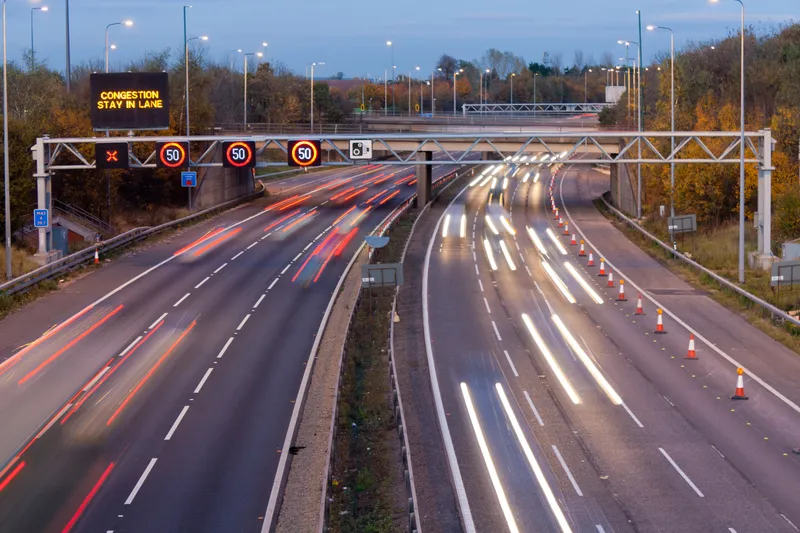Plans to revolutionise travel in the north, including a new TransNorth rail system and new road investments, will today be set out by Chancellor of the Exchequer George Osborne, Deputy Prime Minister Nick Clegg, Transport Secretary Patrick McLoughlin and northern city leaders. As part of building a northern powerhouse, the Chancellor established Transport for the North (TfN) to bring together northern transport authorities, and tasked it with working with government to create the first ever comprehensive tr
March 20, 2015
Read time: 3 mins
Plans to revolutionise travel in the north, including a new TransNorth rail system and new road investments, will today be set out by Chancellor of the Exchequer George Osborne, Deputy Prime Minister Nick Clegg, Transport Secretary Patrick McLoughlin and northern city leaders.
As part of building a northern powerhouse, the Chancellor established Transport for the North (TfN) to bring together northern transport authorities, and tasked it with working with government to create the first ever comprehensive transport strategy for the region, covering roads, rail, freight, airports and smart ticketing. TfN and the government are publishing the first ‘Northern transport strategy’ report today, following5021 Network Rail work on rail improvement options.
The report sets out a long term strategy to connect up the north, create a single economy and allow northern towns and cities to pool their strengths. Plans set out in the report include: slashing journey times between major northern cities with investment in high speed rail; developing new east-west road connections including a road tunnel under the Peak District; and introducing Oyster-style smart travel cards and simpler fares across the north.
Chancellor of the Exchequer George Osborne said: “Connecting up the great cities of the north is at the heart of our plan to build a northern powerhouse. This report has the potential to revolutionise transport in the north and we will work closely with TfN to help make it a reality.
“From backing high speed rail to introducing simpler fares right across the north, our ambitious plans for transport means we will deliver a truly national recovery where every part of the country will share in Britain’s prosperity.”
Commenting on the report, Simon Allport, North West senior partner at EY, said: “Today’s report marks the next step in a multi-modal, integrated Northern transport network, with the potential to connect our soon-to-be smarter cities internally, with each other and with the rest of the UK – helping to make the North a stronger economic force.
“Building on the Northern city’s One North report, the new report importantly signals a clear, phased investment plan to get the North moving and make its transport system smarter through innovations like smart ticketing. It will be interesting to see which of the options for new routes and upgrades are taken forward.
“Following development work by Transport for the North, the focus should be on securing the vital funding and public support for the new projects that require it. All stakeholders – including regional business leaders – should work together to help to shape the future of the Northern transport network.”
As part of building a northern powerhouse, the Chancellor established Transport for the North (TfN) to bring together northern transport authorities, and tasked it with working with government to create the first ever comprehensive transport strategy for the region, covering roads, rail, freight, airports and smart ticketing. TfN and the government are publishing the first ‘Northern transport strategy’ report today, following
The report sets out a long term strategy to connect up the north, create a single economy and allow northern towns and cities to pool their strengths. Plans set out in the report include: slashing journey times between major northern cities with investment in high speed rail; developing new east-west road connections including a road tunnel under the Peak District; and introducing Oyster-style smart travel cards and simpler fares across the north.
Chancellor of the Exchequer George Osborne said: “Connecting up the great cities of the north is at the heart of our plan to build a northern powerhouse. This report has the potential to revolutionise transport in the north and we will work closely with TfN to help make it a reality.
“From backing high speed rail to introducing simpler fares right across the north, our ambitious plans for transport means we will deliver a truly national recovery where every part of the country will share in Britain’s prosperity.”
Commenting on the report, Simon Allport, North West senior partner at EY, said: “Today’s report marks the next step in a multi-modal, integrated Northern transport network, with the potential to connect our soon-to-be smarter cities internally, with each other and with the rest of the UK – helping to make the North a stronger economic force.
“Building on the Northern city’s One North report, the new report importantly signals a clear, phased investment plan to get the North moving and make its transport system smarter through innovations like smart ticketing. It will be interesting to see which of the options for new routes and upgrades are taken forward.
“Following development work by Transport for the North, the focus should be on securing the vital funding and public support for the new projects that require it. All stakeholders – including regional business leaders – should work together to help to shape the future of the Northern transport network.”










